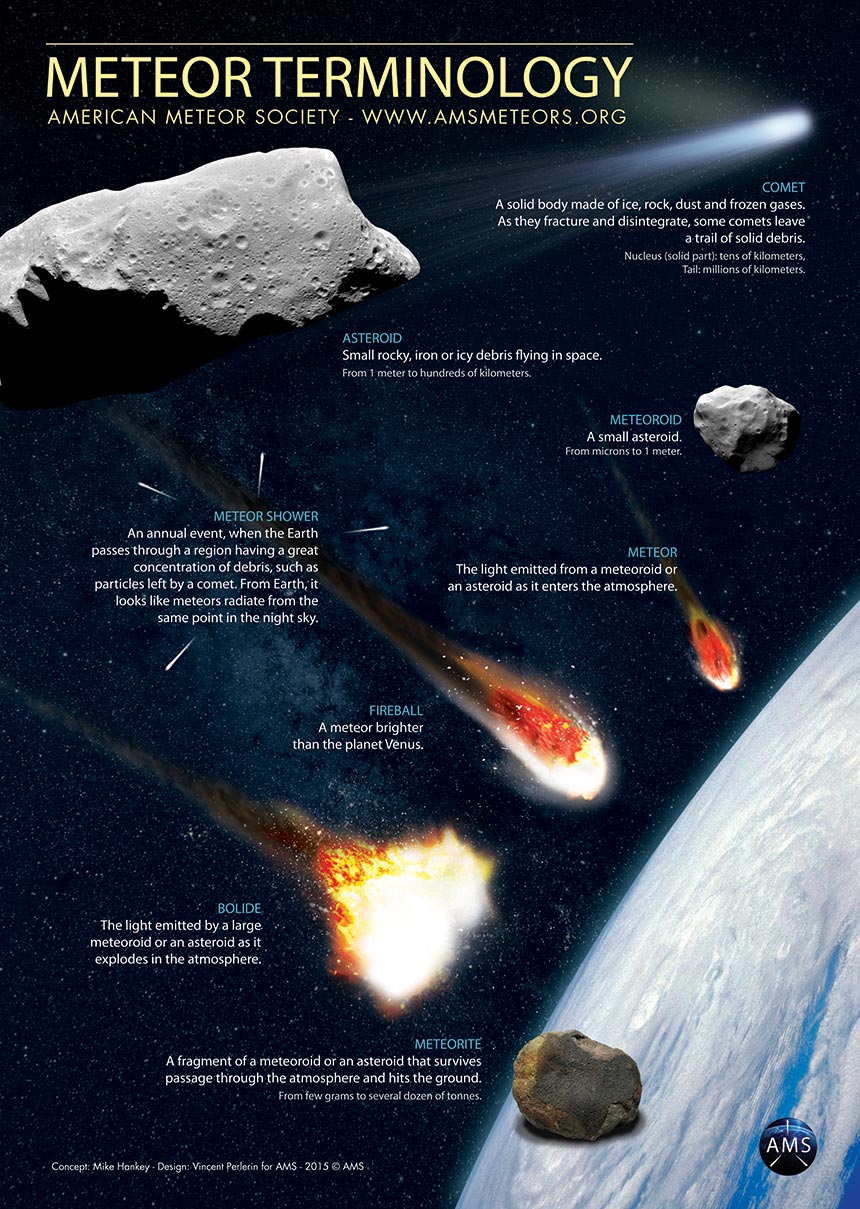If you happened to be walking outside in some areas of British Columbia and Alberta Monday night, you may have witnessed a bright fireball that lit up the sky.

Around 10:14 p.m., some residents from the Okanagan to Calgary saw a mysterious light illuminate the sky, which was followed by a loud bang.
RCMP were inundated with calls after the event, as many residents were left wondering what exactly flew through the sky.
WATCH: Social media lights up after fireball burns in Canadian sky

What was the bright light?
The American Meteor Society (AMS) said the bright light was most likely a fireball, which is another word for a very bright meteor.
A meteor is a piece of space dust or debris that burns up in our atmosphere. It only becomes a meteorite if it hits the ground. A meteoroid is space debris. And if you’ve heard the word “bolide” to describe a meteor, it just means that it was an extremely bright meteor. It can also be called a fireball.
WATCH: Astronomer and Director of Big Sky Observatory James Durbano joined Global News to discuss what we likely saw over the night skies on Monday.

Meteoroids can come in several different forms. A small percentage of them are made of solid iron and others, like comets, are collections of ice and dust, according to Space.com. If a meteoroid does survive its trip through the Earth’s atmosphere it usually means it’s made of solid iron. A more loosely held together meteoroid will usually break up in the air.
Where was it seen?

Get daily National news
The AMS said it received over 100 reports of the fireball from places in B.C., Alberta, Saskatchewan as well as from Washington, Idaho, and Montana.
“According to our latest estimated trajectory, the fireball traveled in a southeast to northwest direction entering the atmosphere near the small city of Boswell and terminating near Meadow Creek, British Columbia,” the AMS stated on its website.
How often do fireballs head to Earth?
Several thousand meteors of fireball magnitude occur in the Earth’s atmosphere each day, astronomers believe.
But, as Earth is mostly covered in oceans, deserts (and that includes Antarctica) or uninhabited areas near the poles, most of them go unseen.
Meteoroids enter the earth’s atmosphere at very high speeds, ranging from 11 km/sec to 72 km/sec, but then they rapidly decelerate. As they slow down, they also lose mass and the meteoroid is stripped away due to high-speed collision with air molecules, according to AMS.
As it continues to fall, the light from the fireball also fades, making it “essentially invisible” when it hits the ground.
WATCH: Mysterious ‘fireball’ lights up the skies over Bangkok
It can cause a sound — but it’s rare
There are two reported types of sounds generated by very bright fireballs, both of which are quite rare. These are sonic booms and electrophonic sounds, the AMS said.
If the bright fireball is large enough and penetrates the Earth’s stratosphere below an altitude of about 50 kilometres, there is a chance a sonic boom may be heard on the ground.
On Monday evening, many residents reported the fireball was accompanied by a loud boom.
“Because sound travels quite slowly, at only about 20 kilometres per minute, it will generally be 1.5 to four minutes after the visual explosion before any sonic boom can be heard,” the AMS stated on its website.
Not the first time it’s happened
Canada has had its fair share of meteor events.
In March another “mysterious fireball” was spotted speeding across the night skies over Metro Vancouver. The meteor let off a green flash, which was seen south of the border in Washington.

On Nov.20, 2008, a bright fireball was seen soaring across the sky in Alberta, Saskatchewan, and Manitoba around sunset. Shadows were cast by the fireball and explosions were reported. Some people even reported hearing “whirring” sounds, believed to be caused by debris falling to the ground.
WATCH: Buzzard Coulee meteorite
On Jan. 18, 2000, around 8:40 p.m., a fireball lit up the sky over Yukon and northern British Columbia. The fireball was extremely bright and was soon followed by loud booms that echoed across the countryside.
One resident even picked up the pieces of the meteorite with a plastic bag around his hand. Scientific instruments recorded the meteor’s initial entry into our atmosphere, and at the time, it was the largest recorded event over land.









Comments